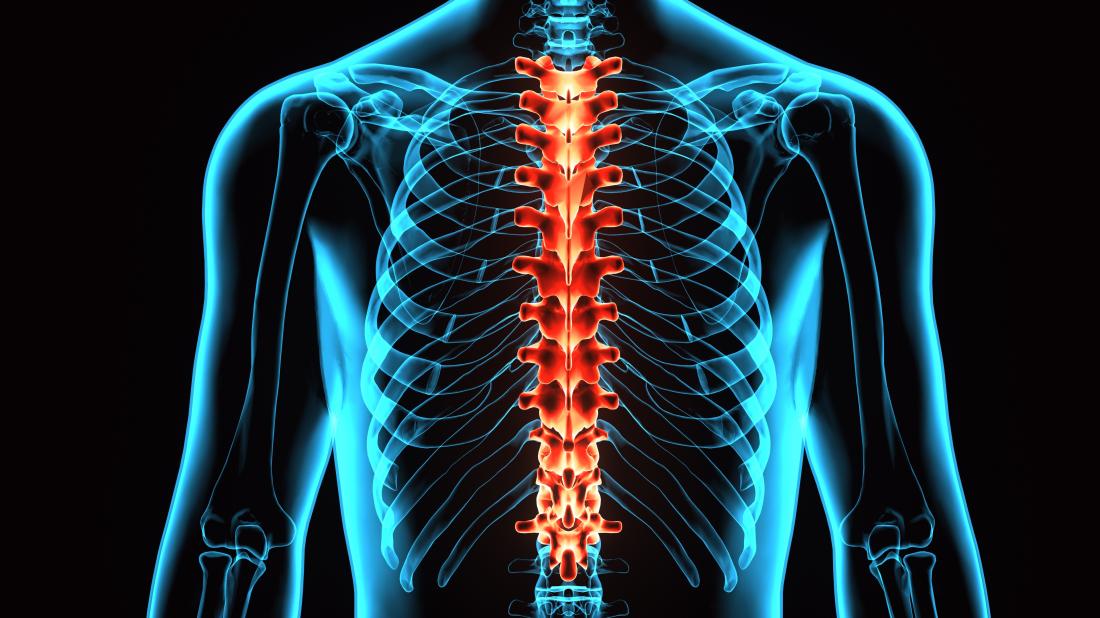Doctors may also refer to a broken back as a spinal fracture. It means that one or more of the bones that make up the spine has broken. A broken back can happen for several reasons, such as an automobile accident or a weakening of the backbone. The most common cause of a broken back is trauma, such as:
* an automobile accident
* a fall from a significant height
* a sporting accident
* a violent act, such as a severe assault or gunshot wound
People with health conditions that weaken the bones, such as osteoporosis, tumors, or cancer, are susceptible to spinal fractures. It means that even strenuous reaching or twisting can result in a broken back. The pain in the back will come on suddenly and get worse when the person moves. The pain might be moderate or severe. Sometimes, a spinal fracture can also damage the spinal cord. This can lead to a variety of outcomes, which may include bladder or bowel dysfunction. They may also experience numbness, tingling, or weakness in the limbs. During the physical exam, the doctor will examine the person from head to toe, including the head, abdomen, pelvis, limbs, and spine. The doctor will make the final diagnosis based on the results of imaging tests. These might include X-rays, CT scans, and MRI scans. Treatment will depend on the severity of the spinal fracture. In most cases doctors will recommend the person wear a back brace. This will keep the spine supported while the vertebrae heal. Surgery aims to put the bones back into their original position and relieve pressure on the nerves or spinal cord. A surgeon will use metal screws, rods, or cages to stabilize the spine.
(Credits: www.medicalnewstoday.com)


